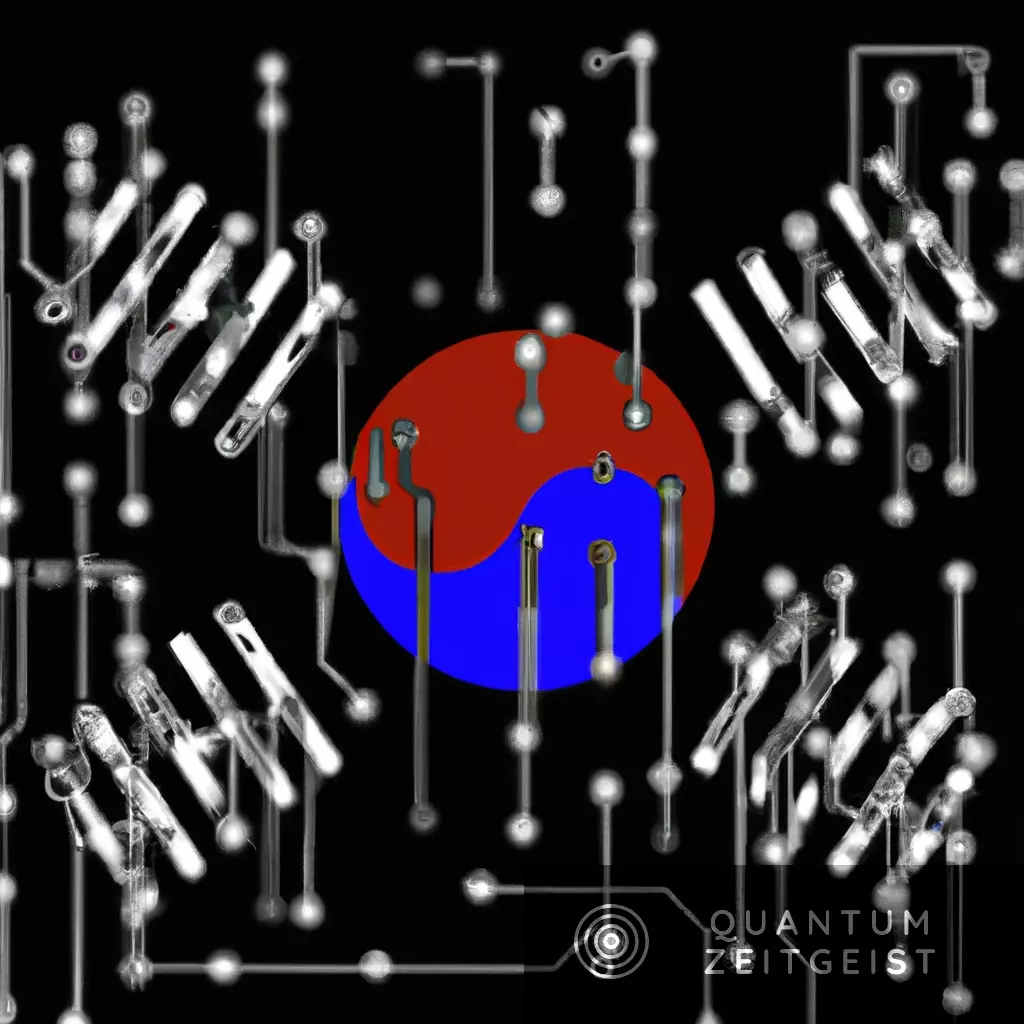Quantum computing is the next wave of technology that will hugely impact the world. This form of computing allows mathematical calculations to be performed much faster than traditional computers.
In South Korea, there has been an increasing number of companies and research institutions looking into quantum computing to solve some of the world’s biggest problems. The government has been supportive by providing funding and incentives to those involved in this field. We take a look at Quantum Computing in Korea.
KAIST – Research in Quantum Computing in Korea
One company leading the way in quantum computing research is the Korea Advanced Institute of Science and Technology (KAIST). Their research team is working on a 1xN plug-and-play Quantum Key Distribution system and putting it on a field test bed in preparation for commercialization. They’re also looking into the latest QKD implementation technologies, such as Measurement Device Independent and Twin-field.
In addition to research work, KAIST offers education programs for students interested in quantum computing. By exchanging information with other institutions and corporations through the IBM Quantum Network, KAIST will improve Korean technology’s global position in quantum computing.
SK Telecom (South Korea Telecom)
Another company contributing to South Korea’s leadership in the quantum area is SK Telecom. SK Telecom is dedicated to creating sophisticated wired and wireless communications networks, the key infrastructure in the new ICT age, so Korea can continue to lead the ICT sector globally.
The company also extends its expertise into quantum technology, specifically quantum cryptography. Two of their technologies have been approved worldwide as the standard for quantum cryptography communication networks.
One functions as a software-defined networking control system that enables telecom businesses to manage their current networks and quantum key distribution (QKD) networks in an integrated and efficient manner.
The other, Quantum Key Distribution Network Federation, will function similarly to international roaming in that it will allow consumers to get “quantum-safe communication services” regardless of whatever QKD network they are on. The technologies were selected as “new work items” at the ITU-T summit in Geneva, Switzerland, in June and are judged “important for the popularisation of quantum cryptographic communication technologies” by SKT.
Samsung (The Korean Tech Leader)

QRNG chips on your smart phone? The smartphone giant, Samsung is busy putting Quantum security into its devices.
Samsung, the maker of the Galaxy line of smartphones, tablets, and other electronics, unveiled the Galaxy A Quantum smartphone with in-built cryptography technology in April 2021. The QRNG chip in the Samsung Galaxy A Quantum has complete entropy from the first bit, is provably random, and was created especially for mobile devices.
By generating unpredictable random numbers based on quantum crypto technology, the quantum random number generation (QRNG) chipset, developed by ID Quantique, enables smartphone users to securely access services like T ID login, SK Pay, and others. According to Samsung, these are reliable, unpredictably strong, and unbiased keys.
South Korea – U.S. Quantum Center
On September 22, 2022, the Ministry of Science and ICT announced the establishment of a quantum technology cooperation center in Washington to handle cooperative research and development initiatives with US partners. The facility was formed as a follow-up to a meeting between South Korea and the United States in May.
By the 23rd, the South Korean National Research Foundation (NRF) donated $1 million to two academics from the University of Chicago’s Pritzker School of Molecular Engineering (PME) to co-lead the establishment of the South Korea-US cooperative research center.
Prof. David Awschalom and Prof. Liang Jiang will co-direct the Center; Seung-Woo Lee from KIST will serve as the lead principal investigator, while Lijun Ma from ITL will serve as a co-principal investigator.
“South Korea has an impressive history of creativity and pioneering innovation in technology, and we are delighted to partner with their researchers and students to accelerate quantum science,”
Prof. David Awschalom
Quantum computers manipulate quantum states, unique phenomena seen at the atomic and subatomic levels, to process and store information. However, such states are exceedingly sensitive, and even minor vibrations or temperature variations are sufficient to erase the quantum information stored inside them, resulting in errors.
The Center for Quantum Error Correction intends to solve this by creating quantum error correction algorithms for use with solid-state quantum computers. The center will fund initiatives in quantum studies between Korean academic and research institutes and their American counterparts.
Five other South Korean-U.S. partnerships were announced the same day, including:
- The Entanglement-based Quantum Network Center with the Korea Research Institute of Standards and Science and The University of Illinois Urbana-Champaign.
- The Quantum repeater center, the Korea Advanced Institute of Science and Technology, and Harvard University.
- The Quantum sensing center Korea University the University of California, Santa Barbara, and the Massachusetts Institute of Technology.
- The Ion-trap Quantum Computing Center with Ewha Womans University and Duke University.
- The Spin Quantum Computing Center with Korea University and the California Institute of Technology.
Next year, Korea hopes to open a similar facility in Europe.
As you can see, South Korea is leading the way in quantum information processing research, both in academics and commercially. We expect to see more quantum centers established and more companies score significant strides in the region.

